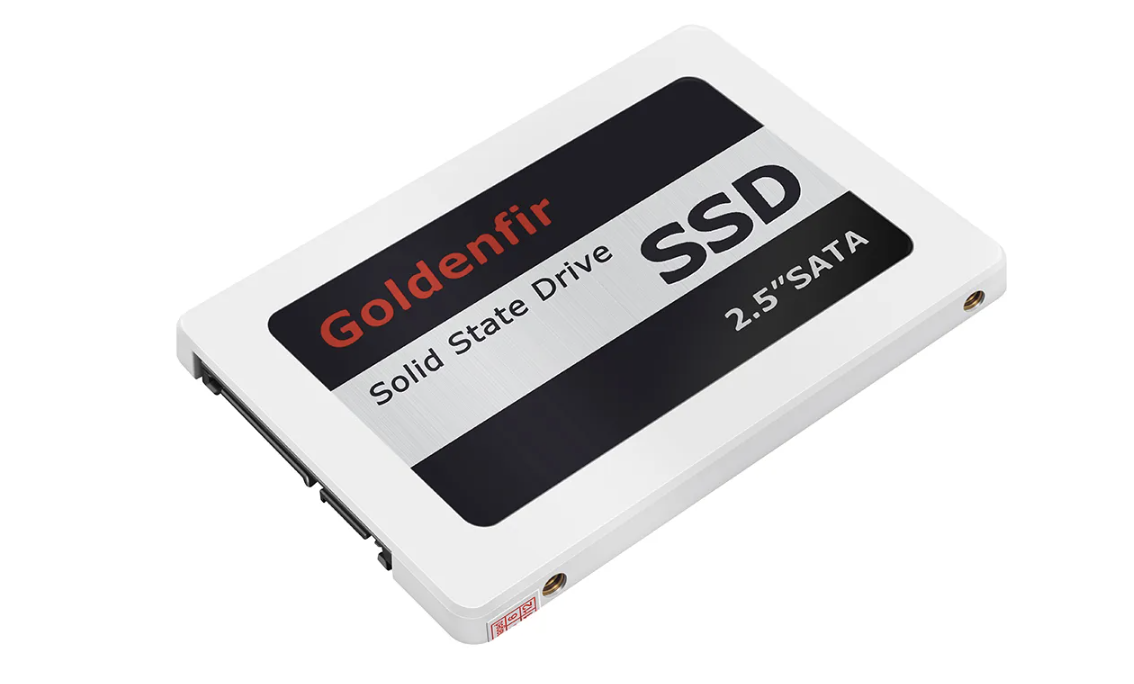Real-life test of the world’s cheapest SSD was so bad, a hard drive would probably beat it — which is what the reviewer actually did and broke the poor thing in two
The $3 Goldenfir 2.5-inch SATA SSD feels and runs like a relic from the distant past

Sign up for breaking news, reviews, opinion, top tech deals, and more.
You are now subscribed
Your newsletter sign-up was successful
With Amazon Prime Day now here, you’re likely to be considering all kinds of deals for the cheapest SSDs out there right now. But just because something’s cheap, that doesn’t mean it’s worth buying – as the Goldenfir SSD proves.
This $3 SSD – available on AliExpress – has a 120GB capacity and may seem far too good to be true. But that’s because it is, according to Storage Review, which analyzed its specifications and tested the device extensively.
Goldenfir claims it offers read speeds of 550MB/s and write speeds of up to 510MB/s, thanks to its YS9083XT SSD controller – which supports multiple types of NAND Flash memory and a variety of form factors. The Goldenfir SSD is, specifically a 2.5-inch SATA SSD.
Goldenfir’s $3 SSD is the opposite of a must-buy
Its reported speeds, according to the manufacturer, aren’t super slow, but they’re nothing like the fastest SSDs out there. In theory, at least, they’re actually more akin to speeds recorded when the first consumer-grade SSDs hit the market. But how does that work in practice?
Storage Review tested the SSD with a Lenovo ThinkSystem SR635 server, fitted with an AMD 7742 CPU and 512GB DDR4 RAM, and compared it with the Kingston DC600M – an industry-leading enterprise storage device.
The drive registered a score of 554MB/s and 518MB/s for reads and writes respectively on CrystalDiskMark – which is not bad at all considering the Kingston DC600M SSD scored 557MB/s and 541MB/s.
But the catch is the benchmarking software may have generated an inflated score due to the way it was configured (it leveraged host-side cache). Other metrics produced awful results, and the device even snapped in half during testing.
Sign up to the TechRadar Pro newsletter to get all the top news, opinion, features and guidance your business needs to succeed!
In 4K random read and write benchmarking, the Goldenfir severely underperformed – and demonstrated terrible latency, which was backed up by 64K sequential tests.
In the former testing, it hit 13,000 IOPS with 10,225ms latency for reads, while Kingston hit 780,000 IOPs and 1,630ms latency. For writes, it was even worse, barely creeping beyond 5,000 IOPs and peaking at 14,000ms latency.
This pattern continued, with the Goldenfir even producing abysmal results against other budget SSDs. The $33 Intel 670p 2TB Gen3 SSD, for example, hit a peak of 473,000 IOPS at 264ms for the 4K random reads test.
More from TechRadar PRo
- Ahead of the big day, check out our roundup of the 30 best early Amazon Prime Day deals
- These are the fastest SSDs on the planet right now
- Check out the cheapest SSD deals available today

Keumars Afifi-Sabet is the Technology Editor for Live Science. He has written for a variety of publications including ITPro, The Week Digital and ComputerActive. He has worked as a technology journalist for more than five years, having previously held the role of features editor with ITPro. In his previous role, he oversaw the commissioning and publishing of long form in areas including AI, cyber security, cloud computing and digital transformation.